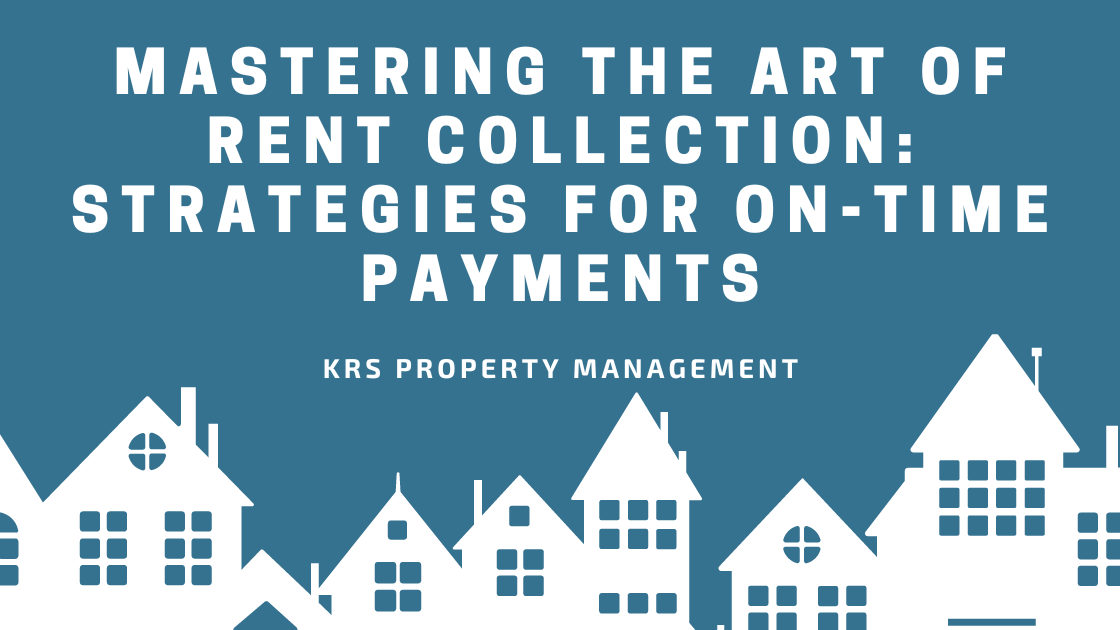
Investing in real estate can allow you to earn a passive income. By renting out your property, you can earn a steady cash flow every month while also benefiting from property appreciation and equity growth over the long term. However, ensuring the profitability of a rental investment requires a lot of work and dedication.
The best way to collect rent money as a landlord is to find and retain responsible tenants. Ideally, you want your renters to stay for the long term, as high tenant turnover rates often mean higher operational costs.
But even with long-term tenants, it can be difficult to maintain a steady income. After all, late and missed money transfers are a problem landlords have to deal with too often.
At KRS Holdings, we want to see your rental investment thrive. In this comprehensive guide, we’ll go over the best strategies to collect rent money and encourage timely online money payments from tenants. Let’s dive in to ensuring timely and recurring payments!
The Risks of Not Having an Effective Rent Collection Process
Timely rent collection is key for profitable real estate investments. As a landlord, you want to receive the money you are owed. When residents consistently pay rent late or not at all, you may face many challenges including:

Financial Strain: Many landlords use their rent payments to cover mortgage payments, property taxes, insurance, and maintenance costs. Constant late or missed rent payments can disrupt their cash flow, leading to operational difficulties and potential financial strain.
Budgeting Issues: Reliable rent income is crucial for budgeting and financial planning. When you collect rent payments on time, it helps ensure a steady cash flow, allowing you to predict income and manage expenses effectively. Irregular money payments, on the other hand, make it incredibly challenging to maintain financial stability and can potentially lead to shortfalls.
Higher Interest Rates: Persistent cash flow issues can affect a landlord’s credit score, making it more expensive to obtain financing in the future due to higher interest rates.
Deferred Maintenance: Insufficient funds due to late rent payments can force landlords to defer maintenance and repairs, leading to property deterioration and increased long-term repair costs.
Higher Administrative Costs: When you collect online rent payments on time, it reduces the need for managing late payments, which often involves additional administrative work. This includes sending reminders, issuing late fees notices, and negotiating payment plans, all of which can be time-consuming and costly.
Tenant Relationship Strain: Consistent late payments often lead to conflicts and disputes over money, especially when collecting rent or late fees becomes a recurring issue. This makes it hard to maintain a positive relationship with your tenant and can potentially create a hostile living environment
Missed Investment Opportunities: Inconsistent rental income can limit a landlord’s ability to invest in additional properties or other investment opportunities, as unreliable rent collection hinders portfolio growth and long-term wealth accumulation.
6 Strategies for Improving Your Rent Collection Process
Consistently late rent can significantly affect your finances as a landlord, the condition of your property, and the relationship you’ve established with your tenants. Luckily, when you collect rent online it can simplify the process and can go a long way for landlords.
.jpg)
Here are some things you can do as a landlord to improve your online rent collection process and encourage tenants to pay on time and easily collect rent :
1. Screen Tenants Thoroughly
Screening tenants carefully is the best way to collect rent and keep your investment safe and collect rent easier. By checking applicants’ income, credit score, and rental history, landlords will be able to ensure their tenants are financially responsible and have the means to pay rent.
Every landlord should make sure to double-check all the information applicants provide, as forged credit reports and payment stubs are two common rental scams.
2. Have Clear Payment Policies
Misunderstandings and forgetfulness are two common causes of late payments, often impacting consistent rent collection. Clearly stating the rent collection policies in your lease will reduce the likelihood of late and missed payments when you go to collect rent.
Your lease should include the price of rent, payment due dates, and information about grace periods and late fees. This way, tenants can refer back to the lease if they’re ever confused about the rent collection process, including when or how much they should pay.
3. Offer Several Payment Options
A landlord can increase the likelihood of timely payments by making the payment process easier for tenants. A great way to collect rent, do this is simply by offering several payment options when collecting rent. Popular payment methods include checks, cash, direct bank transfers, and online rent collection portals.
Many landlords collect rent online, as it is much more convenient for tenants to pay directly from their bank account. With online rent, funds go straight from the tenant’s credit card payments or debit card account to the landlord’s bank account, eliminating the need for physical checks or cash direct deposits.
This rent collection method also allows both parties to easily track rent payments within their bank account records, providing clear rent collection documentation of each direct deposits. By using this approach, landlords can have peace of mind knowing when they accept rent payments online that it is being securely transferred between bank accounts without extra hassle.
Tenants also appreciate the option of online rent payments. Online rent payments allow tenants to pay conveniently, no matter where they are.

By providing tenants with several payment options, they’ll be able to choose the more convenient one for them, and you'll collect rent easier. This can significantly reduce logistical issues and encourage timely payments every month.
4. Send Due Date Reminders
On many occasions, tenants are late with rent due to forgetting the due date or overlooking their payment. A great way to collect rent is to send tenants reminders before the payment due date.
The best way to collect rent on tine is to send a simple text or an automated email can reinforce rent collection timelines, ensuring your tenants always know when rent is due to be pay and significantly increasing the likelihood of paying rent on time.
5. Penalize Late Payments
Having strict late payment policies in your lease can help you encourage tenants to make a timely rent payment. Charging late fees will encourage tenants to make their rent payment on time to avoid having to pay more. Moreover, it can make up for any financial issues you’ve had to pay late.
6. Partner with a Property Management Company
Collecting rent on time can be a challenging task. It usually involves tracking payments, creating invoices, keeping financial records, and reaching out to tenants who missed the due date, direct deposits will help minimize this.
If you don’t have the time for all the tasks associated with rent collection, you should consider hiring a professional property management company like KRS Holdings.
.jpg)
Our team will be able to handle all tasks associated with the rent collection process for you, including financial reporting. Moreover, we can help you screen tenants, handle maintenance and repair requests, and enforce the terms of the lease.
Bottom Line
Failure to collect rent on time poses many risks to investors. Constant late or missed payments can affect your financial stability, the condition of your property, and the overall return on your investment.
Proactive measures, such as thorough tenant screening, clear lease terms, and timely reminders, are essential to mitigate these risks and ensure a stable and profitable rental property business.
Need help collecting rent for your Tidewater rental property? Contact KRS Holdings today!






